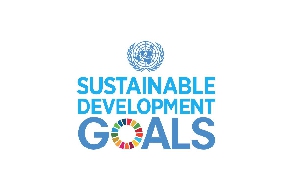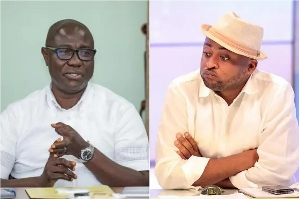Akos (not the real name) sells sachet water on the streets of Madina, a suburb of Accra, and her routine has been to wake up early in the morning to go earn a living for herself and her three children, one of whom has cerebral palsy.
She lives in a rented single room at Ashaley-Botwe, another suburb of the capital city. When leaving the house in the morning, she will lock up the seven-year old son with cerebral palsy who looks more like a one-year old in physique.
Sometimes she is away till evening because she needs to make some money to be able to buy diapers and make porridge for him the next day.
At the Special Needs Parenting Summit organized by the Special Mothers Project, an advocacy and awareness creation programme on cerebral palsy issues, Akos, shared her story with me.
She said: “My sister, I know it is not the best of life for my son but what should I do? One time, I came home to meet my son in a pool of blood, he had a seizure and had bitten his tongue so hard, he was bleeding, he was snapping in and out of consciousness, I even thought it was the end of the road for him but he survived.” She kept sighing during the narration of her story.
Akos spoke of fruitless attempts made to enroll her child in school so that at least someone could take care of him while out there selling but every school she had approached simply would not accept them.
“One of the schools even asked me why I wanted to enroll such a child in school, so I realized that school was not a choice for him. I used to carry him at my back while I on the street selling but I had to answer too many questions from the society.”
Some people would see me with the child and would ask that I should go to the hospital and stay there with him.
They do not understand the condition, and they usually think something evil has befallen us. People look on me with pity, others with shame and at a point I made a decision to lock him up as I struggle to earn a living.
Akos says she does not feel guilty for doing that - she is doing her best.
“Sometimes, I even think that he is better off dead than alive, at least if he dies, he will rest from all the pain and suffering but for now, he is rejected by society and it is such a pain.
Regarding healthcare, Akos said, there has been a lot of back and forth, “we have gone to many hospitals, we have spent a lot of money on seeking healthcare, sometime ago, I borrowed money from everyone I knew and just spent on health care.”
“We were required to do numerous laboratory tests and scans and it looked as if nothing came out of that.
“In a week, we were required to go for different kinds of therapies. I had to go to the Korle Bu Teaching Hospital about four times in a week for some 30 to 45 minutes physiotherapy, occupational therapy.”
Akos said, as for speech therapy it was recently that they started talking about it and that, “apart from the long queues, we waste the whole day at the hospital. I am unable to sell anything on days I go to the hospital, so eventually I decided that going to the hospital was just a waste of time.
“I have resorted to using herbs and it has been helpful and more effective than the hospital.”
Akos’s situation is not a unique one, it is a common situation or story shared by many parents especially mothers of children with cerebral palsy and other disabilities.
It looks as if there is an unwritten law which says: “kill children born with disabilities in Ghana for we cannot care about them”.
There are no social support systems and it seems society puts impediments in the way of a special needs mom just to make life a little more difficult for them.
A communique issued at the end of the summit made some suggestions that government could implement to enhance the lives of families raising children with disabilities.
Among them is the need to make healthcare free for children with complex health needs at least for the first five years of their lives.
The communique also called for effective implementation of the inclusive education policy. Every public school should dedicate one classroom for children with special needs where trained people would take care of them while the parents work to earn some income.
Additionally, it asked that parents raising children with disabilities should be enabled to access the District Assemblies Common Fund for persons with disabilities to help them reduce their huge financial burden.
In my opinion, implementing just the above mentioned suggestions in the communique would enhance the lives of families raising children with disabilities.
Sometimes, I feel that in the eyes of the public, they assume that everyone with a child who has special needs should be given hand-outs.
The Sustainable Development Goals by the United Nations, which Ghana proudly subscribes to, among other things calls for an end to poverty in all forms, seeks to ensure healthy lives and promote the well-being of all at all ages - inclusive and equitable education and promotion of lifelong learning opportunities for everybody.
We therefore, as a country need to do everything to make sure that children with disabilities are not left behind.
Opinions of Friday, 27 September 2019
Columnist: Hannah Awadzi















